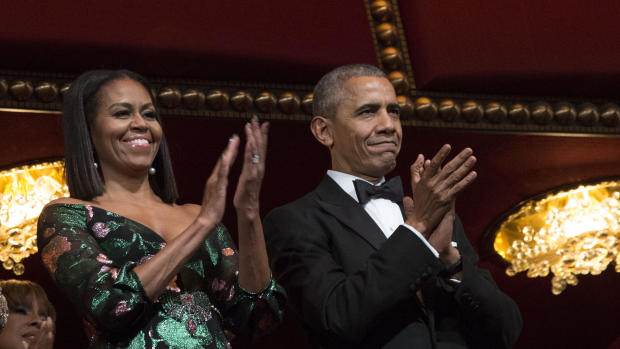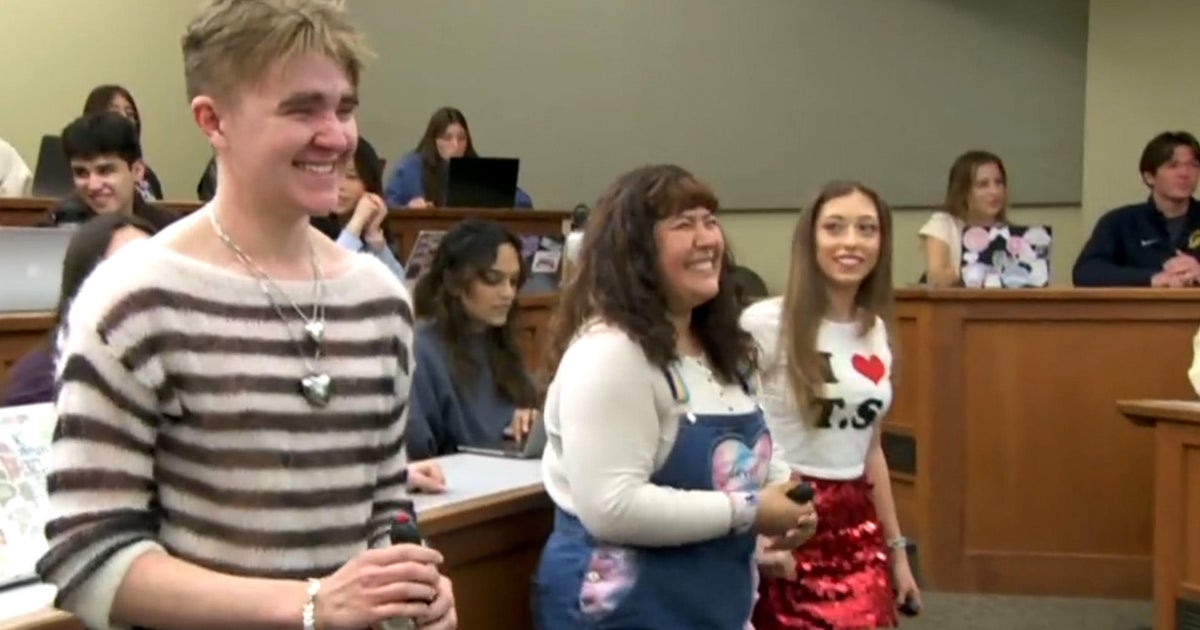Al Pacino reflects on Kennedy Center honor, iconic "Godfather" role
Al Pacino is considered by many to be one of America’s greatest actors. From leading man to supporting roles, and brutal gangsters to good-guy cops, Pacino brings a power to the screen few can match.
That is a big reason why he is among this year’s Kennedy Center honorees. But Pacino told “CBS This Morning” co-host Charlie Rose he’s not entirely sure why he deserves the honor.
“Think about this Oscar, Tony, Emmy. And there you are, Kennedy Center, sitting up there with the president of the United States,” Rose said. “This is a signal honor.”
“I was really surprised when they told me I was going to receive it,” Pacino said. “Now, I don’t know what that says about me but it…”
“It says you’re damn good at what you do,” Rose interrupted.
“I don’t know,” Pacino said, laughing. “No, I mean, about being surprised.”
If Pacino was surprised by the honor, he’s likely the only one.
“For Al Pacino, it’s not just business; it’s craft,” Kevin Spacey described him.
His is a career filled with iconic characters in some of Hollywood’s biggest films.
“You know, you get nominated for an Oscar or something, I mean, it’s great. But you don’t go back and think of where you come from and how you got here,” Pacino said. “So that in and of itself was just different.”
“So it -- when you look at this remarkable life, yours-- who do you thank? Do you thank your mother, Rose? Your grandfather when you moved?” Rose asked.
“Oh, my grandfather and my mother. Of course, my grandfather was the… saved my life, I believe. He was a loving figure to me, someone I adored,” Pacino said.
Alfredo James Pacino was born in East Harlem, New York in 1940. His parents split when he was only two, and he was raised by his mother and grandparents. With a flair for the dramatic, acting found Pacino, as much as he found acting.
“Was it inevitable to you now when you look back at acting, you were born to act?” Rose asked.
“Yeah, I think so,” Pacino said.
“What was it?” Rose asked.
“I know that maybe it was the first way I got to communicate. Even when I played baseball, they say I would act when I went for the ball. You know, I’d roll over and stuff,” Pacino said, laughing.
“You had a sense of drama,” Rose said.
“Yeah. I had a sense of drama. I used to come home and do a dying act when I’d come in the door in my apartment. And they’d say, ‘Oh, there it is. There’s, there’s Al doin’ his little thing.’ And then one day, I was flipping on a fire escape, fell down on concrete on my head, went home, climbed the five stories, opened the door, fell down, and I was out. And it’s -- and they were just like, ‘It’s Al doin’ his thing.’”
That thing would get him noticed. He was accepted on his second attempt to the Actor’s Studio – the prestigious acting school where stars like Marilyn Monroe, Jack Nicholson and Paul Newman learned the craft.
Pacino landed his first starring role in 1971’s “The Panic in Needle Park.” But it was his next role as Michael Corleone in “The Godfather” that served notice to the world.
Pacino had arrived. Director Francis Ford Copolla described his “magnetic quality, a smoldering ambiance.”
“Francis wanted you. Why did he want you?” Rose asked.
“He just, I -- you’d have to ask him,” Pacino said, laughing. “Because the head of Paramount, they didn’t want Brando. And they didn’t want me.”
“They didn’t want Brando, either?” Rose asked.
“No. But Francis kept with it. He was just on it,” Pacino said. “Francis said, ‘They’re going to let him go and I want him. So I’m going to show him the scene with Sollozzo in the restaurant where Michael shoots both of them. And that scene came up, they kept me.”
Pacino would reprise the role in “Godfather II” and “Godfather III.”
His acting chops endeared him to Hollywood directors. His simmering sex appeal made him a star. In all, he’s been in close to 50 films and countless plays, always sculpting unique characters like over-the-top cocaine kingpin Tony Montana in “Scarface,” whistleblower cop Frank Serpico, bank robber Sonny Wortzik in “Dog Day Afternoon,” and the cartoonish “Big Boy” Caprice in “Dick Tracy.”
He won his only Oscar for his portrayal of Lt. Col. Col Frank Slade in “Scent of a Woman.”
“Help us understand how you create a character,” Rose said.
“Oh, that is so difficult,” Pacino said.
“But you don’t memorize the lines going in,” Rose said.
“No, no,” Pacino said.
“What is it you do?” Rose asked.
“You know… they’re different roles. And I think you approach different roles differently,” Pacino said. “You have to make those lines so that they don’t feel like you’re saying lines. But they’re extensions of your wishes, your thoughts, your -- they’re coming out of spontaneity. Saying them for the first time, hearing for the first time.”
“It’s magic,” Rose said.
“It is,” Pacino said.
“I think it’s magic,” Rose said.
“It is magic. Yes,” Pacino said.




